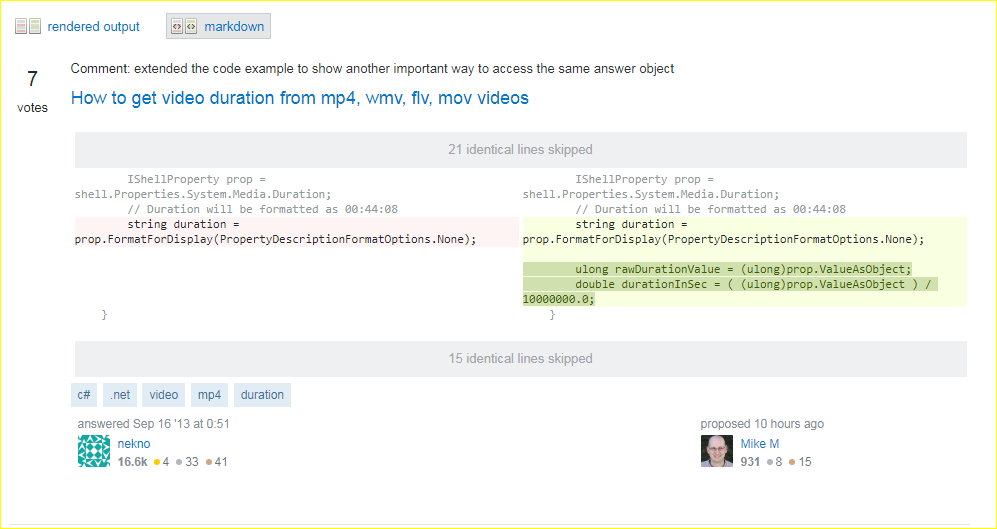TL;DR: When you add new information to an existing answer, you are circumventing the voting which should take place on your answer. If you want to add to someone else's answer, write your own and indicate that you're supplementing an existing answer. There are two principal exceptions to this explained in detail at the bottom, regarding additional information found in comments, and to add updates if the answer becomes obsolete.
Your edits may very well be on point and correct additions to supplement the answer and make it better, however, by adding new information to an existing answer, you are (unintentionally in this case although some people could do it intentionally) evading the voting process where the community evaluates the value of your addition.
Think of it this way with a somewhat edge case example. Joe Billsman has an issue sees a question about his same that already has 5+ answers. He reads through the answers, but none of them fully fix his issue. After searching for a while, he figures out how to solve his problem. Wanting to make sure his answer is possible to find by others in his situation, he considers posting his answer, which is extremely similar to one of the highest voted answers with the exception of one or two steps that made all the difference for him.
But Joe stops to think, and sees that his answer will be all the way at the bottom of the page, harder to find for people with that problem. Joe thinks his fix is really important because it was essential to him, so to make sure it gets seen, Joe edits his answer into the similar high voted answer.
What's the issue here? The problem is that Joe's only source of judgement as to the usefulness of his solution is his own. Maybe the reason why that answer wasn't already there is because it is actually not all that useful to the general community, or because the answer was wrong and his "solution" just coincidentally fixed things (perhaps because of a misunderstanding the original problem). Or the answer could be just fine and valuable. But now, without any community input to validate or question that answer to see if it was good or not (through voting principally and possibly comments), Joe's answer is located inside a post with one of the highest vote counts. Joe is happy about that, because he thinks his addition to the answer is really important and deserves to be there, but the community hasn't evaluated the content that he has added, yet when someone looks at the answer, they'll see the high vote count are much more likely to trust the answer, which hasn't actually been evaluated by the community.
This case is kind of specific, but it demonstrates what happens when another person adds new content to an existing answer. It could be for any reason, like your own reason to add a meaningful extension to the existing solutions, or someone who wants to show a more efficient way to do the exact same thing. All of these are good things, however if you simply edit it into the answer, you sidestep the voting process, with your addition assuming the existing standing of the answer you edited.
The proper way to add new content (even little amounts) to an answer is to do as Tensibai suggested:
...at this point, it may also be another answer starting by 'To complement @nekno answer....'.
and thereby posting the content you want to add as a distinct answer, that way your addition can be evaluated for accuracy and usefulness by the community outside of the original answer.
Do note that this is a suggestion when you want to edit new material into an existing post. There are many, many reasons to edit posts to make them better, though "better" should not mean adding new material, rather, it should mean making what's there more presentable/clear.
Two important exceptions to this:
These are found on the Help Center's Guide to Editing.
Editing is appropriate:
To include additional information only found in comments, so all of the information relevant to the post is contained in one place.
The most obvious time I see this done is when the OP has made a comment with more information to their own post without including it in their question. These can be integrated into the question easily since they are the OP's own words that you're just collecting into one place. I've also seen this done when post's comments are somewhat aged, where it is obvious that the OP has not acknowledged the comments, or they've explicitly accepted the comments but haven't edited their post to reflect it after a time. But use much caution when doing this, because you don't want to edit something into a question that the OP didn't add because they did not want it to be there.
To correct minor mistakes or add updates as the post ages
Leaning to the second half of adding updates as the post ages, this is also a special case that should be considered if an answer becomes obsolete. When it is actually appropriate to make these edits is discussed in length in Good question, old version-dependent answer and its linked questions.

string durationeither, it was just a dead local like theulongtimecode anddoubletime in seconds that Mike added. I don't know C# either, but I know about strongly-typed languages, and this looks clearly useful, because it's going directly from thepropto a numeric, while the original only showed going directly to a string. The only problem with the edit is that the changelog was too generic: it should have said "also show how to get numeric timestamps"